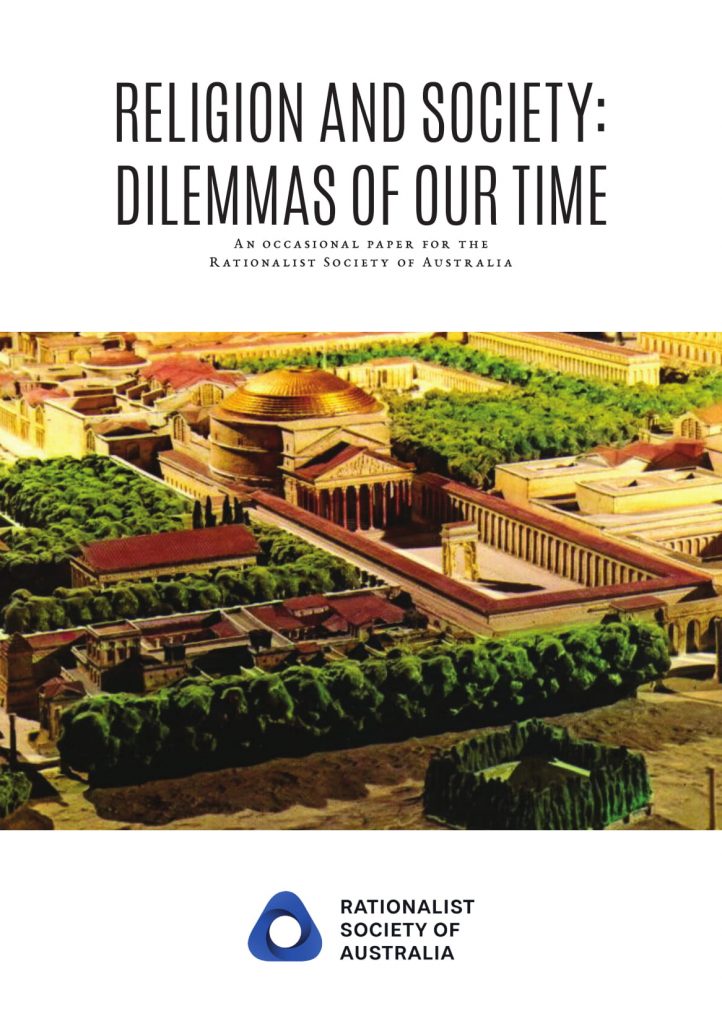The Ruddock Inquiry found there is no great problem with the state of religious freedom in this country. Nevertheless, the Morrison government is pursuing an agenda that might exacerbate religious dissension and increase social disruption by actively promoting religious belief and by privileging religious belief over any other set of beliefs.
In this context, the Rationalist Society of Australia has just published an Occasional Paper on Religion & Society and sent a copy to every federal politician.
The Paper does not argue for or against particular forms of legislation. Rather, it places religion into a historical setting, reminding readers that “What we are experiencing is the climax of some fifteen thousand years of human technological and cultural development” which, worryingly, “is exhausting the biosphere, and [which] could end in the mother of all mass extinctions.”
Unlike some of our more excitable colleagues in the freethought movement, the RSA does not underestimate nor denigrate the role of religion in modern society. But we do urge readers to “see religions for what they really are: the ethical and poetic attempts by iron age seers long ago to grapple with what already seemed to them to be the troubling course of human history.”
What to do about these ‘troubles’?
We say that, rather than continuing to perpetuate primitive theological literalism, what is needed is a new type of ‘religion’. Extraordinary advances in scientific understanding over past centuries inspire — or should inspire — awe at the nature of being, humility in the face of the cosmos and solidarity with one another and with fellow creatures. This should be our modern ‘religion’.
Why is this important?
We all seem to know that “something is rotten in the state of Denmark”. Extremism at both ends of the political spectrum is dividing societies more today than at any time in the past 50 years. We need more dialogue, not shouting across difference.
In the Introduction to this Paper, we illustrate just why this new way of thinking about religion is so important. It concerns a film recently produced by a young Australian entrepreneur, Desh Amila, called Islam & the Future of Tolerance. Shunned by the traditional media institutions, this beautifully constructed film shows just what can be achieved by reasonable dialogue across difference in a diverse society. If you are interested, we would be happy to arrange for a showing of this film.
And what of the legislation?
The RSA is not opposed to a Religious Discrimination Act, as long as such an Act protects not only religious beliefs but the beliefs of atheists, humanists, and rationalists as well. Protecting the freedom to believe should not discriminate between sets of beliefs.
And of course, the freedom to believe is not the same thing as the freedom to act on those beliefs. In particular, actions, including speech actions, that denigrate, intimidate, or incite hostility or contempt towards people merely because they are born with a protected attribute (sex, sexuality, ethnicity etc) should not be privileged with legal protection.
Clearly, balancing human rights and freedoms is not a simple matter. That’s why we support a comprehensive federal Human Rights and Responsibilities Charter, rather than separate anti-discrimination acts.
But that’s a discussion for another time.
In the meantime, if you would like to read our Occasional Paper on Religion & Society, please click here.
Thanks!


